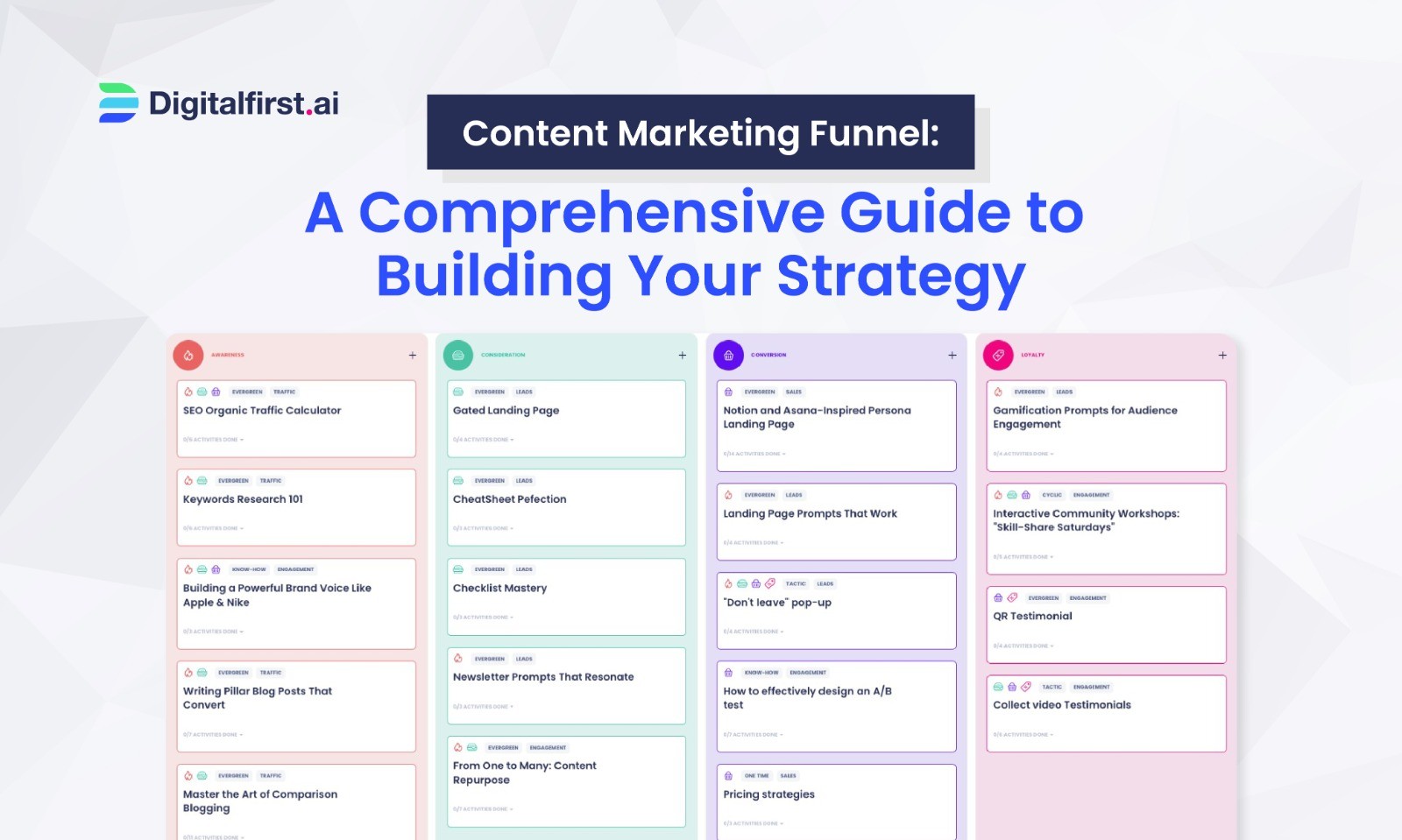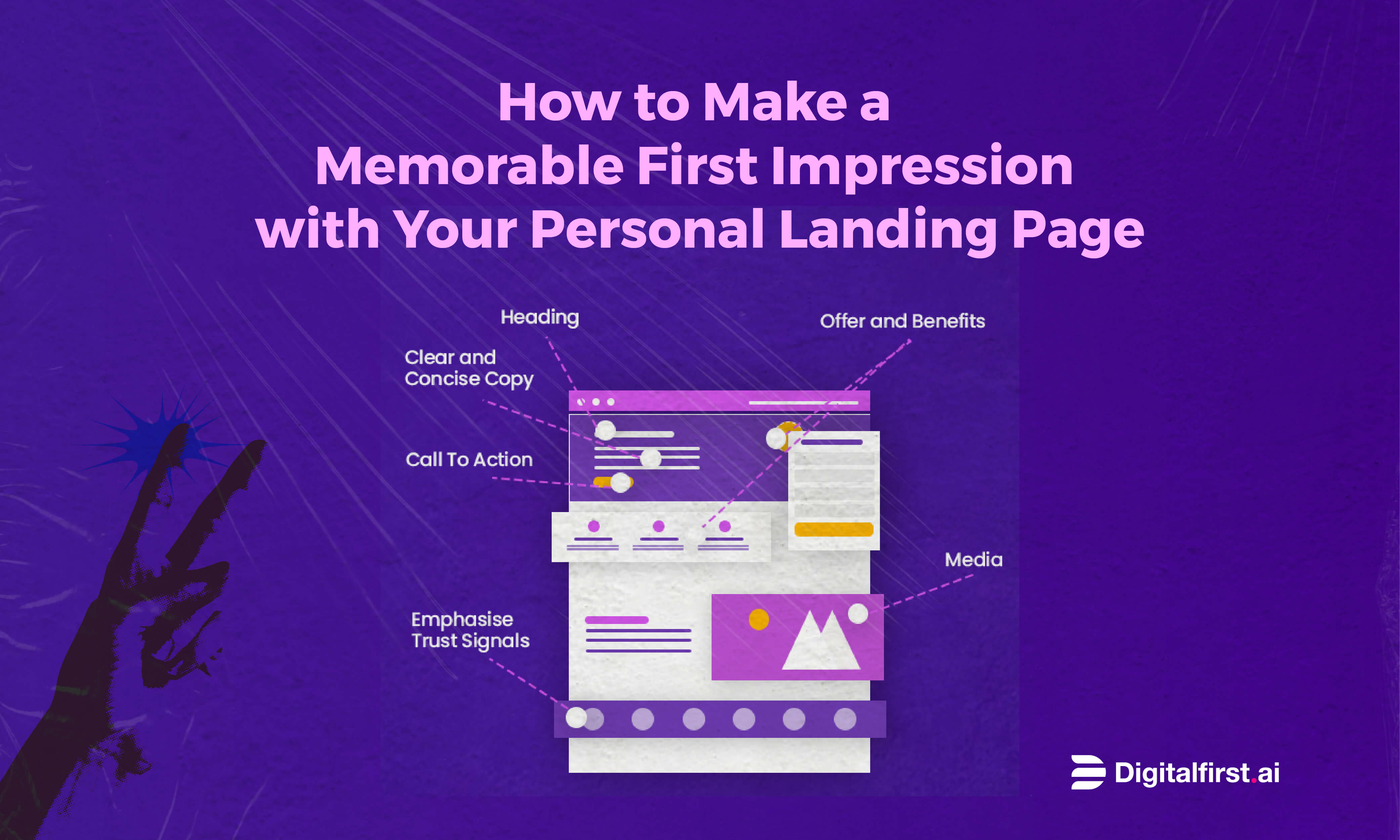Mastering Keyword Research: Insider Tips for Dominating Search Engine Results
Drive Organic Traffic Like a Pro: Learn the secrets of successful keyword research and attract high-quality visitors to your website
Sonu kalwar
Share:
As you begin your journey into the world of digital marketing, have you ever wondered why some websites rank higher on Google than others?
According to a study by Ahrefs, 90.63% of all pages in the index get zero traffic from Google.
This highlights the importance of keyword research in identifying relevant and high-traffic keywords to target in order to drive traffic to a business's website.
In this blog post, I'll be your guide as we explore Keyword Research and take a closer look at how you can leverage it to give your website a competitive edge.
Throughout this post, I'll use real-world examples and data-driven insights to show you how to conduct keyword research, find high-value keywords, and incorporate them seamlessly into your content.
By the end of this post, you'll be equipped with the tools and knowledge you need to optimize your website and attract more traffic. Let's delve in!
Try Digital First AI's Plug & Play AI-Powered Marketing Workflows Builder

No credit card needed. Instant access. Try now for free.
Understanding SEO
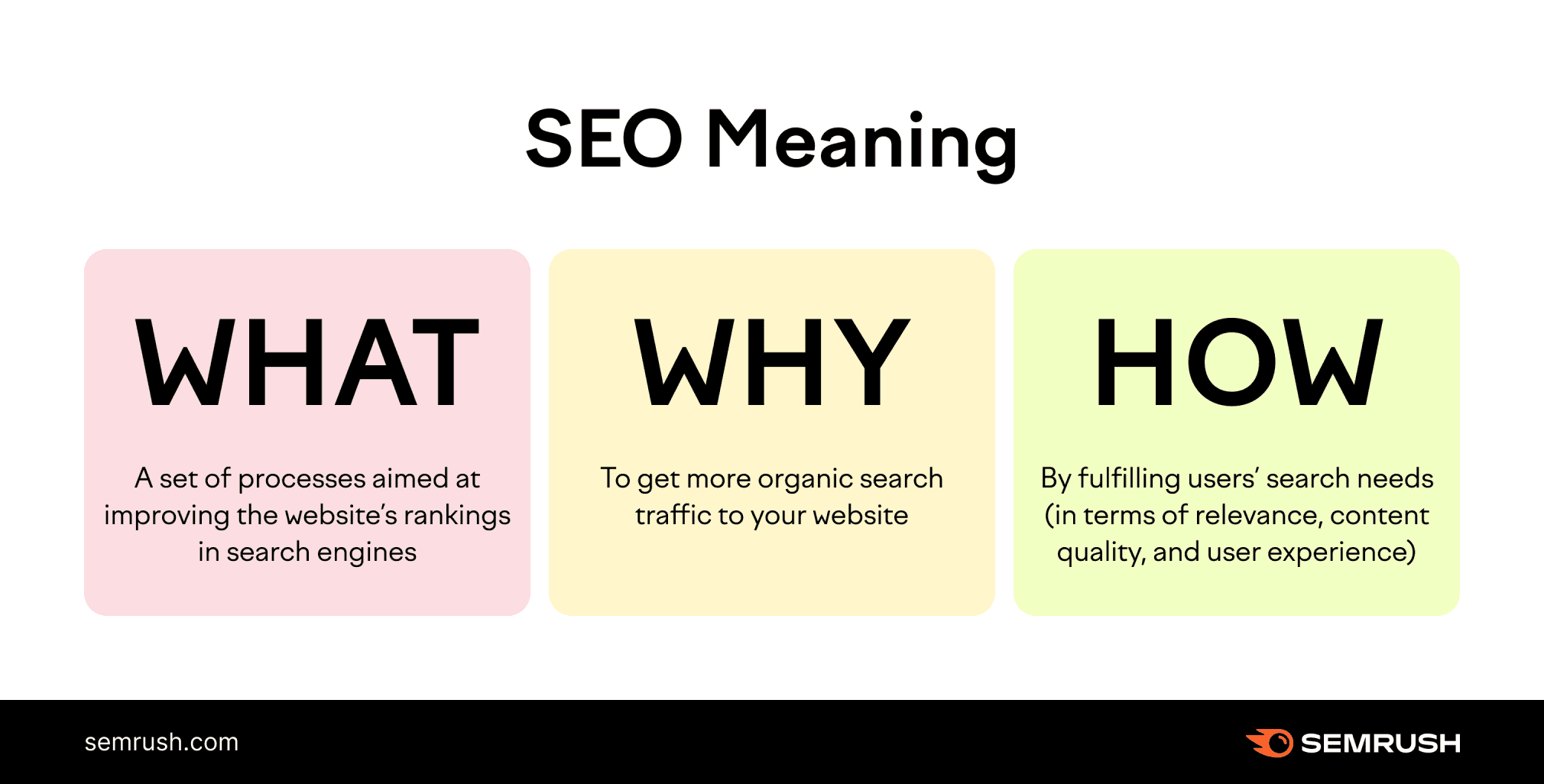
SEO, or search engine optimization, is the process of optimizing your website and content to rank higher on search engines like Google. It involves various strategies and techniques to increase your website's authority and visibility in search engine results.
Google and other search engines use complex algorithms that determine the relevance and quality of web pages, and they often update these algorithms to provide the best search results to users.
What is Keyword Research
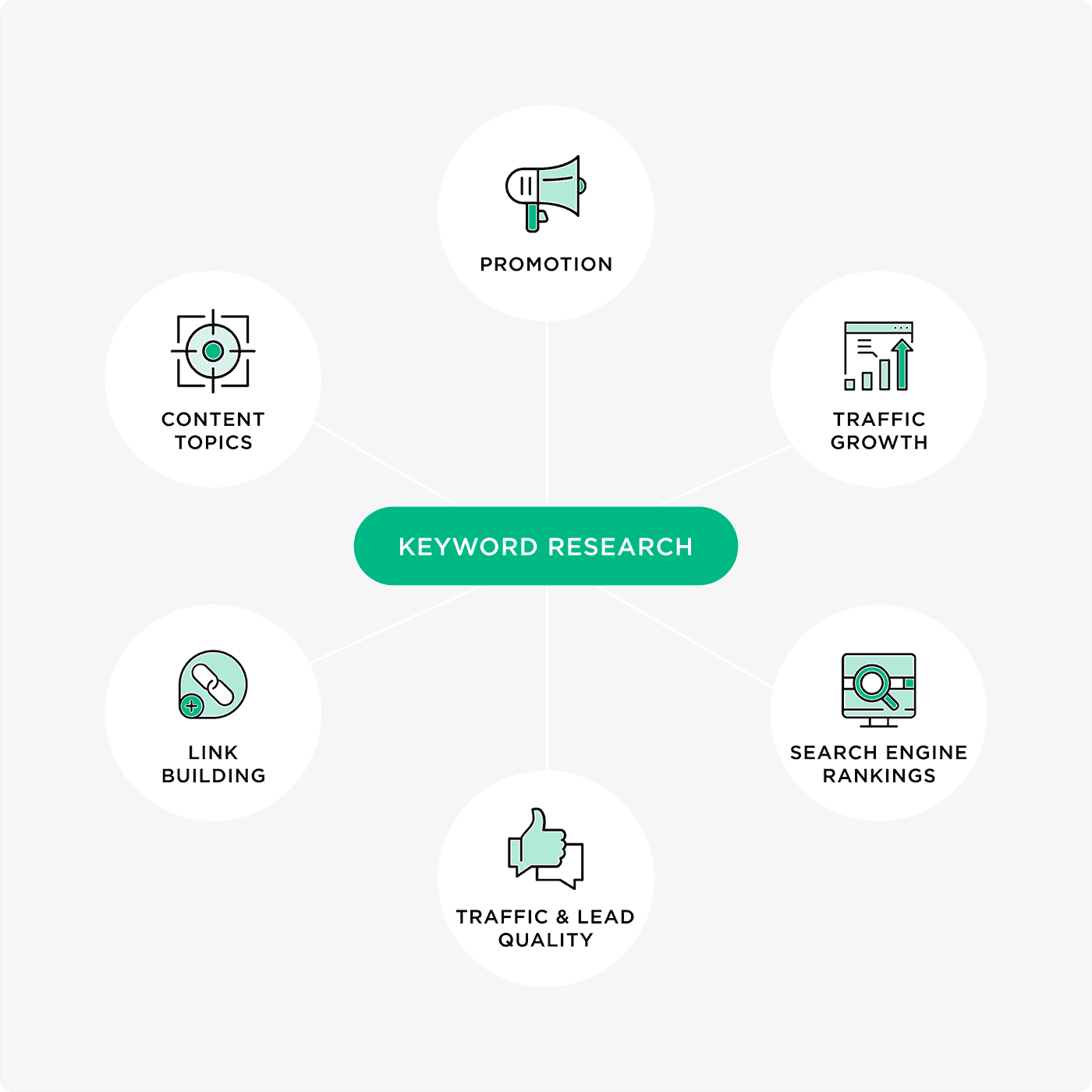
Keyword research is the process of identifying the specific keywords and search terms that your target audience is using when searching for information online.
By understanding the keywords that are most relevant to your business or industry, you can create content that aligns with user intent and improves your chances of ranking higher in search engine results.
Why is Keyword Research Important
Keyword research is a crucial step in any SEO strategy for several reasons:
Business Growth: By targeting the right keywords, you can attract organic traffic to your website, reach a wider audience, and ultimately increase your customer acquisition and business growth.
Ranking Higher: Understanding the keywords that your target audience is using allows you to optimize your content and improve your chances of ranking higher in search engine results. This can lead to more visibility and organic traffic for your website.
Organic Traffic: By targeting relevant keywords, you can attract users who are actively searching for information related to your business or industry. This increases the likelihood of attracting qualified leads and driving organic traffic to your website.
Analyzing Your Audience
To effectively perform keyword research, it's essential to understand your target audience and their search behavior. By analyzing your audience, you can gain insights into their preferences, motivations, and search intent. Here are some key aspects to consider:
Audience Persona: Creating buyer personas or user personas helps you understand the demographics, interests, and pain points of your target audience. This information can guide your keyword research and content creation process.
User Intent: Understanding the intent behind a user's search query is crucial for keyword research. Users may have informational intent (seeking knowledge), navigational intent (looking for a specific website), or transactional intent (ready to make a purchase).
Types of Keywords
Keywords can be categorized into different types based on their search volume, competition, and length. Understanding these types can help you develop a more comprehensive keyword strategy. Here are some common types of keywords:
Long-Tail Keywords
Longer and more specific keyword phrases that attract less search traffic but have a higher conversion rate. For example, "what is the difference between cold brew and iced coffee."
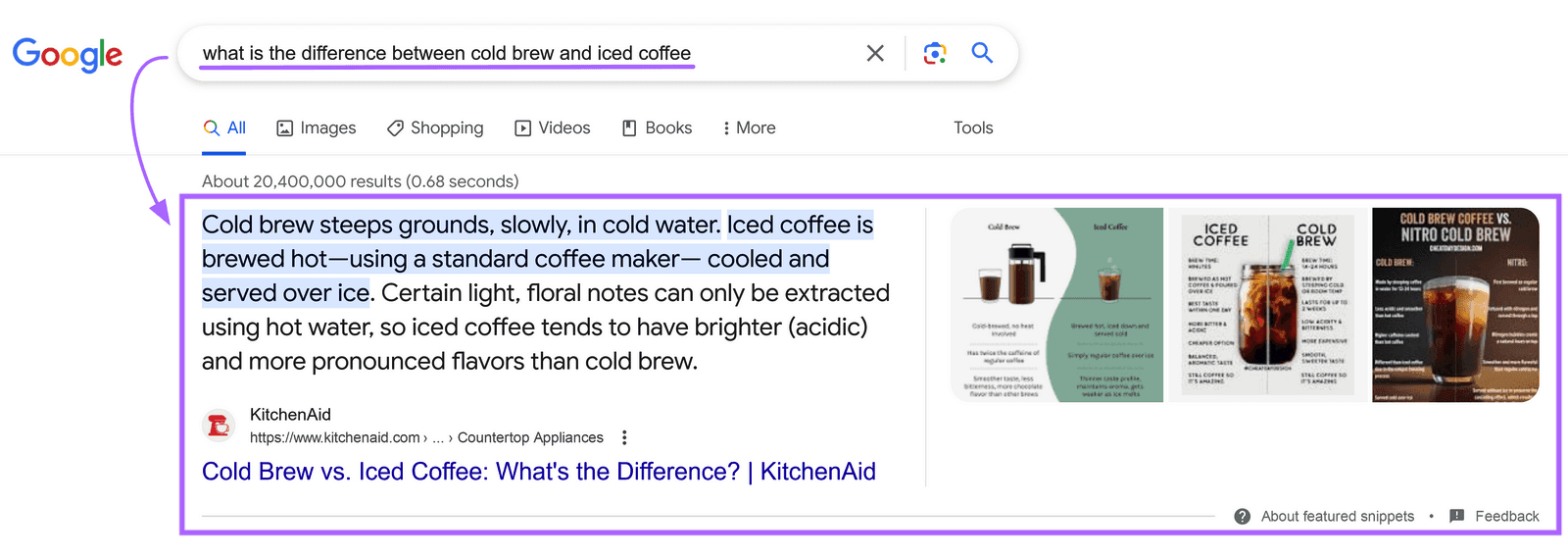
High-Volume Keywords
Broad search terms that attract a large volume of traffic but also have high competition. For example, "coffee calories."
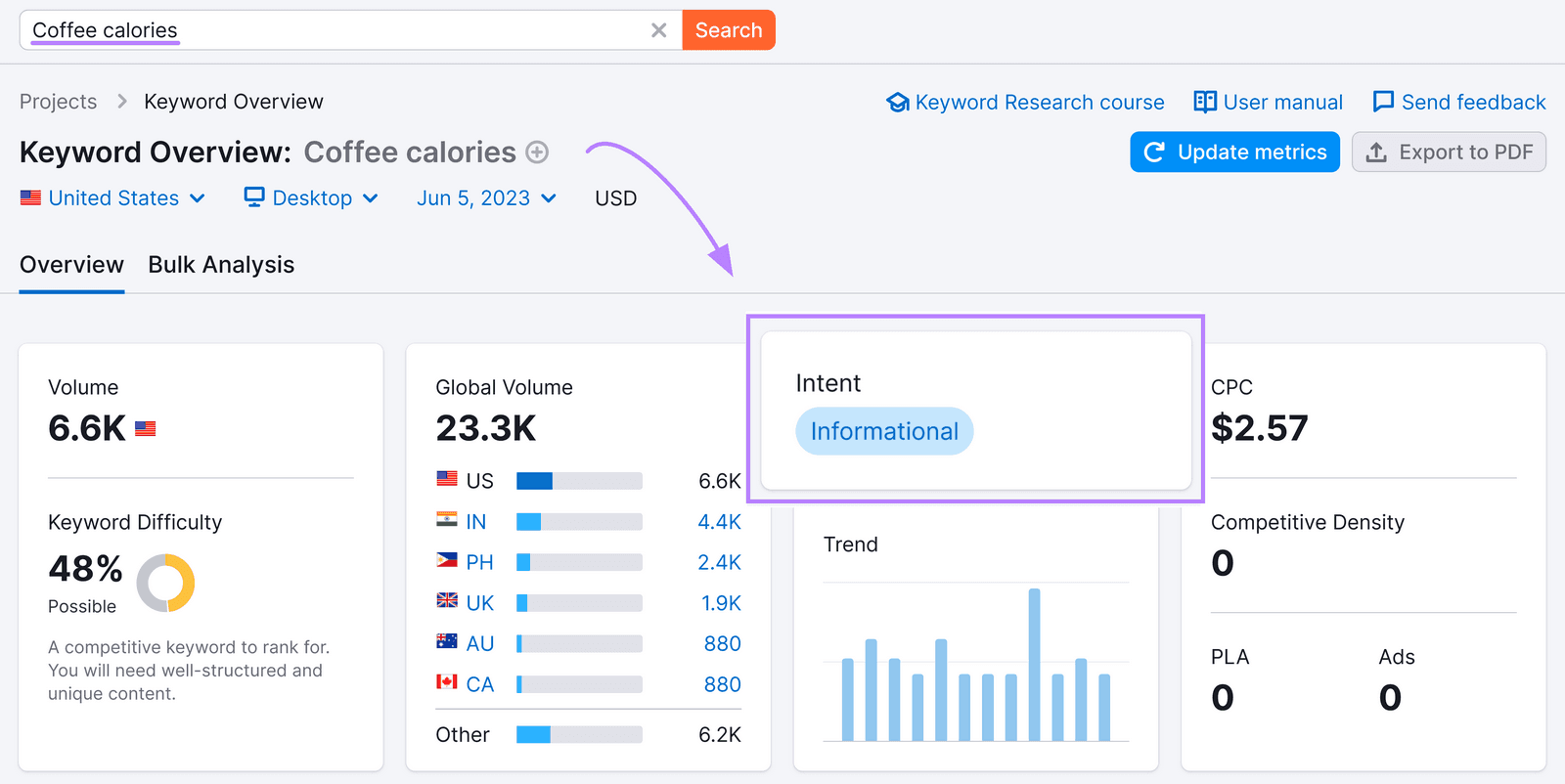
Seed Keywords: Core terms or short phrases that are used as a starting point for keyword research. For example, "youtube."
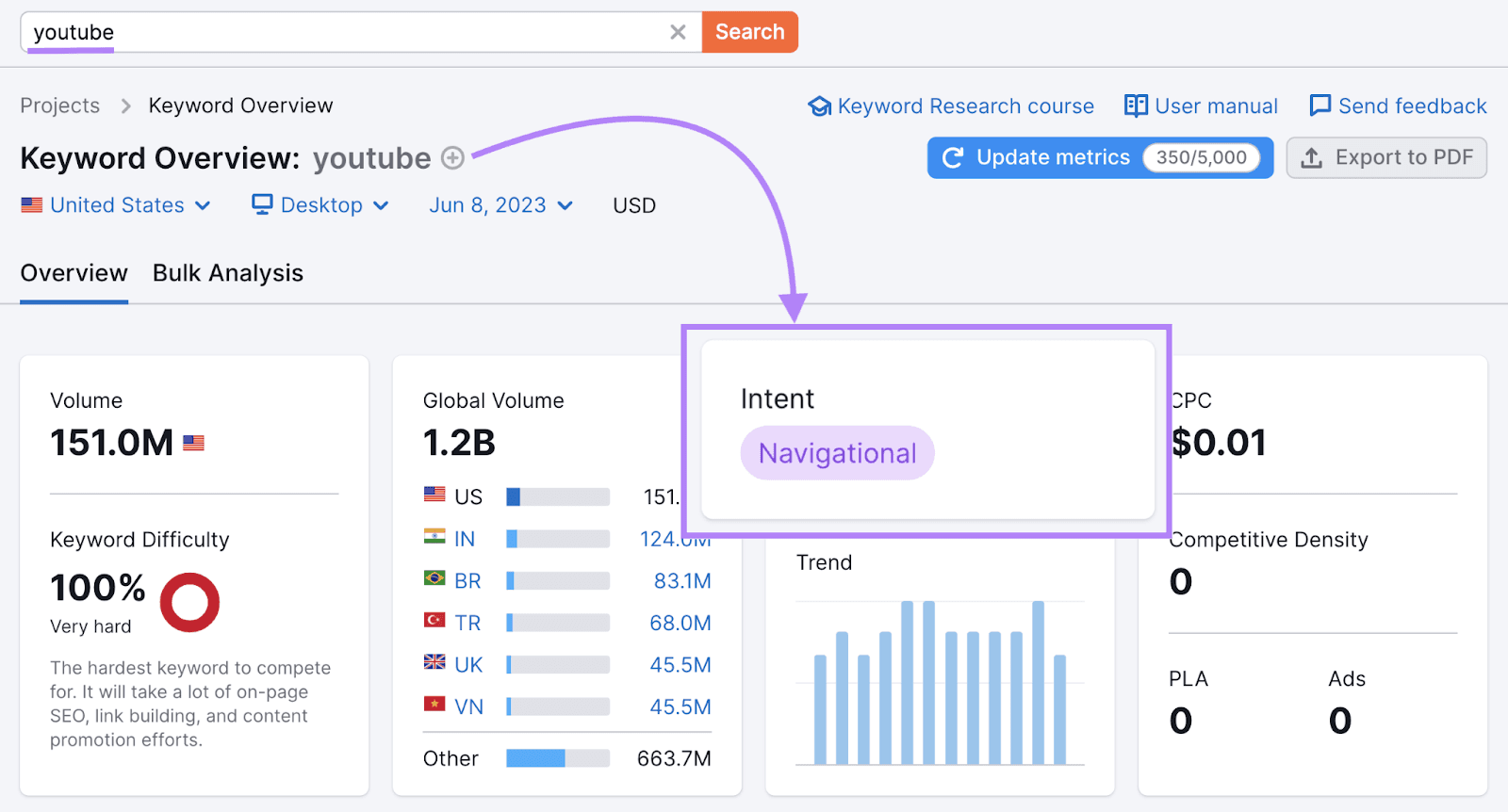
Low-Competition Keywords
Niche terms or long-tail keywords that have low competition and can be easier to rank for. For example, "running shoes for women with wide feet."
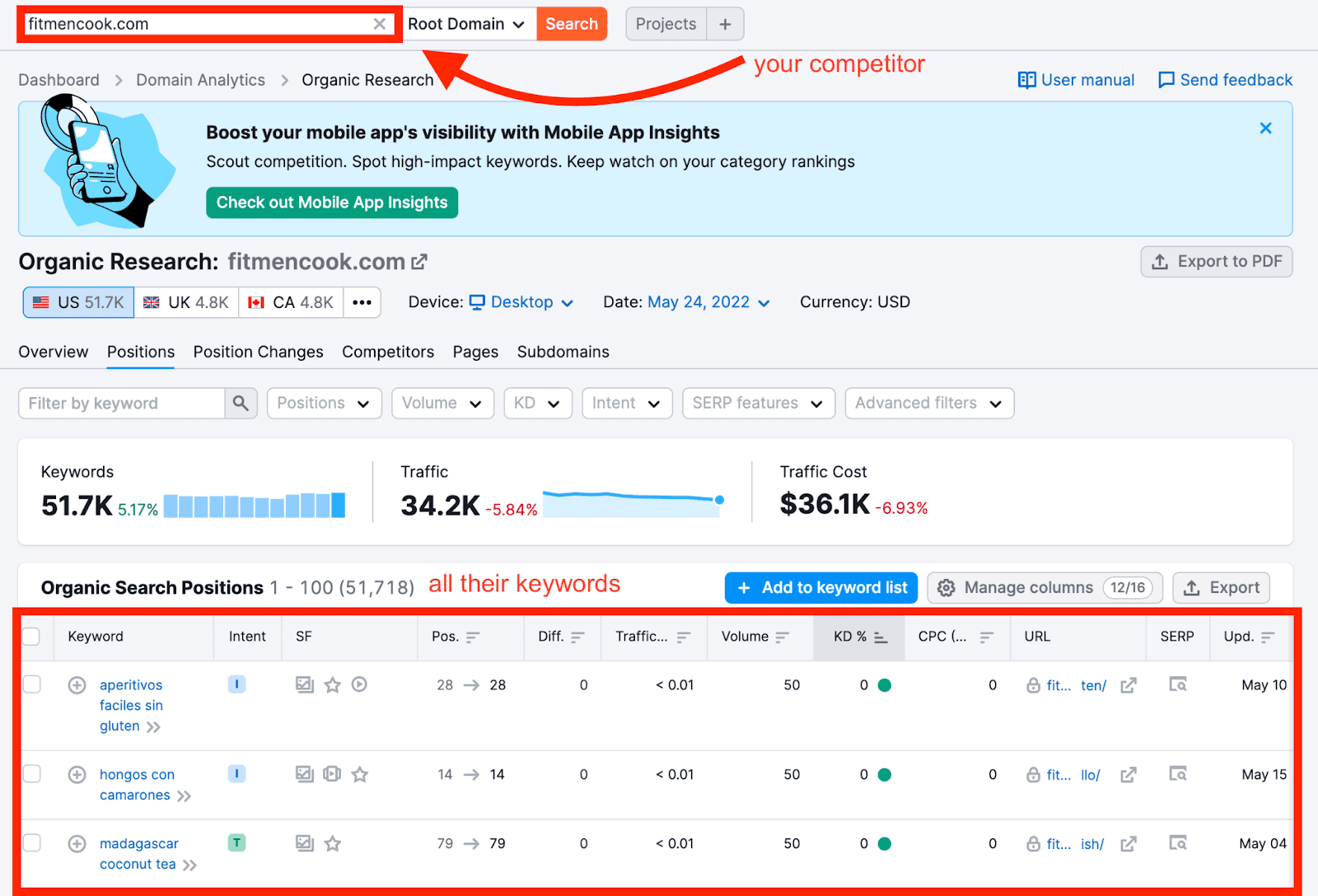
How to Identify Keywords
There are several tools and techniques available to help you identify keywords for your SEO strategy. Here are some popular methods:
Google Keyword Planner: A free tool by Google that provides insights into the search volume and competition of keywords. It also suggests related keywords that you can consider.
Ahrefs: A comprehensive SEO tool that offers keyword research capabilities, backlink analysis, and competitive analysis. It provides search volume data, keyword difficulty scores, and SERP analysis.
SEMrush: Another popular SEO tool that offers keyword research, competitor analysis, and backlink monitoring. It provides detailed information on keyword volumes, trends, and competition.
Keywords Everywhere: A browser extension that shows you keyword data directly on Google search results. It provides search volume, cost-per-click (CPC), and competition details for keywords.
Ubersuggest: A keyword research tool that provides keyword ideas, search volume data, and keyword difficulty scores. It also offers insights into the top-ranking pages for a specific keyword.
Use Digital First AI Template for Keyword Research
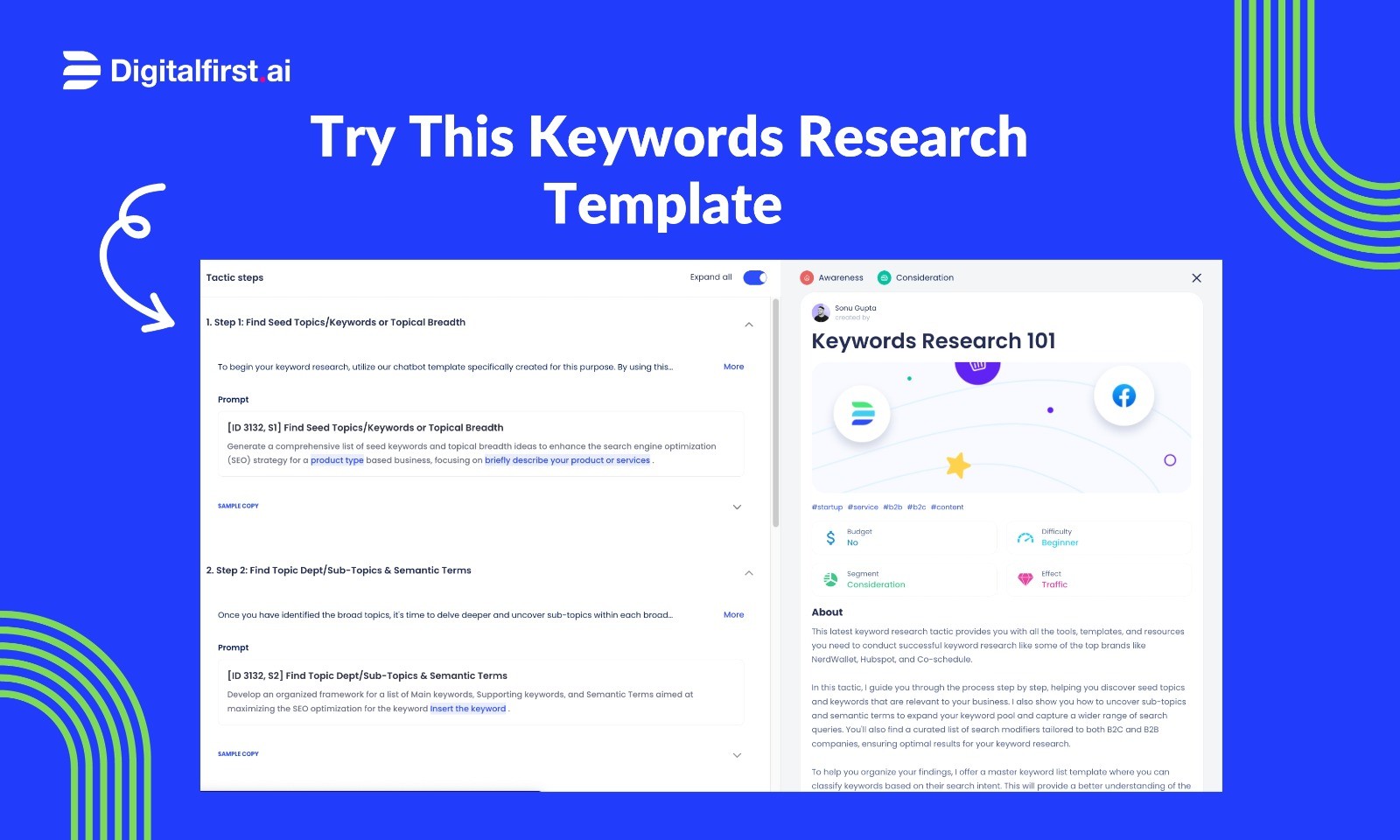
With Digital First AI pre-built template for keyword research, you can easily conduct and manage keyword.
Understanding Keyword Metrics
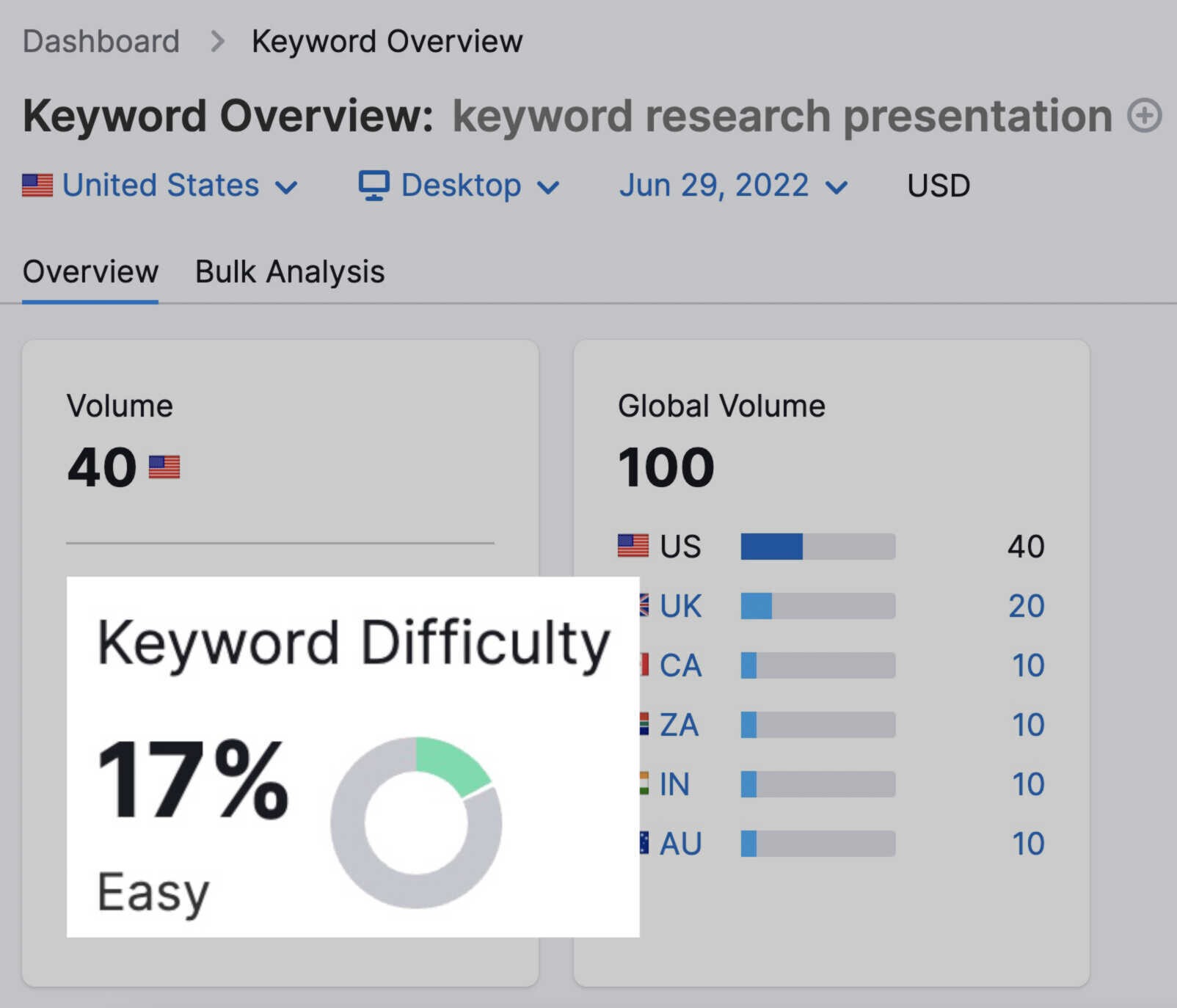
When performing keyword research, it's important to consider various metrics that can help you evaluate the potential of a keyword. Here are some key metrics to pay attention to:
Search Volume: The average number of times a keyword is searched for in a given time period, usually on a monthly basis. Higher search volume suggests greater potential traffic.
Keyword Difficulty: A metric that estimates the level of competition for a keyword. It helps you assess the difficulty of ranking for a particular keyword.
CPC (Cost-Per-Click): The average amount advertisers are willing to pay for a click on their ads for a specific keyword. Higher CPC suggests higher commercial intent.
Tools for Keyword Research
In addition to the tools mentioned earlier, there are other resources you can leverage to optimize your keyword research:
SEMrush is one of the most popular and comprehensive SEO tools available. It not only provides keyword research capabilities but also offers a plethora of other SEO features such as keyword gap analysis, keyword difficulty, content ideas, backlink analytics and more.
As a free tool from Google, Google Trends offers invaluable insights into keyword popularity over time. Here's how you can leverage this tool:
Seasonal Trends: Identify keywords that experience spikes in search volume during specific times of the year, helping you optimize your content accordingly.
Regional Insights: Understand geographical variations in keyword popularity to tailor your SEO strategy based on location-specific trends.
Related Queries: Discover related search queries to expand your keyword list and create more comprehensive content.
Ahrefs is another powerful tool that provides in-depth keyword insights and competitive analysis. Here are some key features:
Keyword Explorer: Discover thousands of keyword ideas, analyze their search volumes, and understand their difficulty levels.
SERP Analysis: View the top-ranking search results for any keyword and understand what it takes to outrank your competition.
Content Gap Analysis: Identify keywords that your competitors are ranking for but you aren't, allowing you to capitalize on untapped opportunities.
Surfer SEO
Surfer SEO is a powerful on-page optimization tool that can enhance your keyword research efforts. Key features include:
Content Editor: Optimize your content for SEO by analyzing the top-ranking pages for your target keywords and providing data-driven recommendations.
SERP Analyzer: Gain insights into the specific factors that contribute to the top-ranking pages, such as word count, backlinks, and more.
Keyword Surfer: Get instant keyword data while browsing Google search results, making it easy to evaluate the competition for specific keywords.
Google Search Console is a free tool from Google that offers valuable keyword data directly from the search engine itself. Key features include:
Search Performance Metrics: Analyze how your website is performing in terms of impressions, clicks, and average position for specific keywords.
Queries Report: Identify the keywords that are driving traffic to your website and optimize your content based on their performance.
Wordstream is a comprehensive PPC and SEO tool that offers robust keyword research capabilities. Here's what makes it a valuable asset:
Keyword Suggestions: Discover new keywords to target based on your industry niche and audience.
Keyword Grouping: Organize your keywords into logical groups to improve your ad campaign structures and website organization.
Search Volume Data: Get accurate search volume data to understand the popularity and competition for specific keywords.
Understanding Search Intent
Search intent refers to the reason behind a user's search query. By understanding search intent, you can optimize your content to match the user's needs and provide a better user experience. Here are some common types of search intent:
Informational Intent: Users seeking information or answers to their questions. They often use keywords like "how to," "what is," or "tips for."
Commercial Intent: Users looking to make a purchase or find a service. They may use keywords like "buy," "discount," or "best price."
Developing a Content Strategy
Keyword research is a critical component of developing a content strategy. By identifying the keywords that your target audience is searching for, you can create content that aligns with their needs and interests. Here are some steps to consider:
Identify Relevant Topics: Use your keyword research to identify relevant topics that align with your business or industry. These topics should address the needs and interests of your target audience.
Plan Your Content: Develop a content calendar or plan that outlines the topics, keywords, and types of content you will create. This helps you stay organized and ensure a consistent flow of content.
Optimize Your Content: Use the keywords you've identified in your content in a natural and organic way. Avoid keyword stuffing or over-optimization, as this can negatively impact your rankings.
Creating an SEO Strategy
A comprehensive SEO strategy involves more than just keyword research. Here are some key components to consider:
On-Site Optimization: Optimize your website by including relevant keywords in your meta tags, headings, URLs, and content. Improve your website's loading speed, mobile responsiveness, and overall user experience.
Monitoring and Analysis: Regularly monitor your keyword rankings, website traffic, and user engagement metrics. Analyze the performance of your content and make improvements based on data-driven insights.
Interpreting SERP Features
Search engine results pages (SERPs) often include additional features that provide users with more information without clicking through to a website. Understanding these features can help you optimize your content. Some common SERP features include:
Featured Snippets: A summarized answer to a user's query displayed at the top of the search results. Optimize your content to provide concise and informative answers to common user questions.
Knowledge Graph: A box of information displayed on the right-hand side of the search results that provides additional details about a specific entity or topic. Optimize your content to appear in the Knowledge Graph by providing comprehensive and accurate information.
Optimizing for Other Search Engines
While Google is the dominant search engine, it's important to consider other search engines like Bing and platforms like Amazon when optimizing your content. Here are some key points to remember:
Bing: Optimize your content for Bing by following similar SEO practices as for Google. Bing has its own algorithms and ranking factors, so ensure your website is indexed and accessible to Bing's crawler.
Amazon: If you sell products on Amazon, optimizing your product listings with relevant keywords is crucial for visibility and sales. Use Amazon's keyword research tools to identify the most effective keywords for your listings.
Resource & Templates
Digital First AI Template- This template helps you with a step by step process to conduct keyword research with fill-in prompts, benchamarks and templates.
Backlinko Keyword Research Template - This template helps you streamline and organize your keyword research. It is available in Google Sheets and Excel.
Similarweb Keyword Research Template - This comprehensive guide provides a beginner's guide to keyword research and includes a free keyword research template.
Attrock Keyword Research Template - This in-depth template helps you organize, streamline, and track all the data and insights from your keyword research.
Semrush Keyword Mapping Template - This template helps you map keywords for SEO improvement. It compares your pages to the top 10 rival pages and identifies areas for improvement.
DemandJump Custom Keyword Research Template - This template helps you organize and determine the most relevant and SEO-friendly keywords for any topic.
Zapier Best Free Keyword Research Tools - This article provides a list of the best free keyword research tools, including Google Keyword Planner and Semrush.
Ahrefs Keyword Research Template - Ahrefs provides a keyword research template that helps you analyze search volume, keyword difficulty, and other important metrics.
Moz Keyword Research Template - Moz offers a keyword research template that helps you prioritize and track your keyword research efforts.
SE Ranking Keyword Research Template - SE Ranking provides a keyword research template that helps you analyze search volume, competition, and other important factors.
Build Marketing Workflows That Work for you

No credit card needed. Instant access. Try now for free
Digital First AI empowers marketers with AI-driven tools to centralize data, build personalized strategies, and execute campaigns seamlessly.
Generate content, automate workflows, and outpace competitors—all in one secure platform.
AI-Powered Data Room: Centralize and analyze unstructured data for actionable insights.
AI Strategy Canvases: Generate 26+ strategic canvases for tailored campaigns.
Advanced Research Tools: Conduct real-time market and competitor research.
AI Content & Visuals: Create high-quality copy and visuals with leading AI models.
Drag-and-Drop Workflow Builder: Design and automate custom workflows effortlessly.
Pre-Built Templates: Jumpstart campaigns with customizable templates.
Over 15,000 marketers and entrepreneurs from around the world are already reaping the benefits. Enjoy a free trial without any commitments!
It's a Wrap
In conclusion, keyword research is a crucial aspect of optimizing your website for search engines and driving organic traffic. By analyzing your audience and understanding their search behavior, you can align your keyword strategy with user needs.
Key takeaways from our discussion include considering long-tail and high-volume keywords, leveraging tools like Digital First AI, Google Keyword Planner and SEMrush for streamlined keyword research.
Remember to continually monitor and update your keyword strategy to stay ahead in the ever-evolving digital landscape.
Take action today by implementing these tips and tools to improve your website's visibility and attract more organic traffic.
Start your journey to SEO success now!
FAQs
What are the essential steps in keyword research for SEO?
The essential steps in keyword research for SEO include:
Understanding the goal and target audience of your website.
Brainstorming seed keywords and identifying relevant topics.
Using keyword research tools to expand your keyword list.
Analyzing keyword metrics like search volume and competition.
Prioritizing keywords based on relevance and potential traffic.
Incorporating the selected keywords into your website content and metadata.
Which keyword research tools are ideal for beginners?
Some keyword research tools that are ideal for beginners include:
Google Keyword Planner: This free tool allows you to explore keyword ideas and provides useful data on search volume and competition.
Ubersuggest: It offers keyword suggestions and gives insights on search volume and difficulty.
Answer the Public: This tool provides ideas by generating questions and suggestions based on your chosen keyword.
Keywordtool.io: It generates keyword ideas from multiple sources, including Google Autocomplete.
These tools can help beginners get started with keyword research and provide valuable insights to optimize their websites.
How to find the right SEO keywords for a website?
To find the right SEO keywords for a website, you can follow these steps:
Understand your target audience and their search intent.
Analyze your competitors and identify the keywords they are targeting.
Use keyword research tools to discover relevant keywords with high search volume and low competition.
Consider long-tail keywords that are more specific and have a higher chance of conversion.
Prioritize keywords that align with your website's content and goals.
By combining these steps, you can find the right SEO keywords that will help improve your website's visibility and attract the right audience.
What is the process of researching keywords for Google Ads?
The process of researching keywords for Google Ads includes:
Understand your advertising goals and target audience.
Conduct keyword research using tools like Google Keyword Planner, Ubersuggest, or Ahrefs.
Identify relevant keywords with high search volume and low competition.
Consider adding negative keywords to refine your campaigns and prevent irrelevant clicks.
Organize your keywords into ad groups and create targeted ads.
Continuously monitor and optimize your ads based on performance data.
How do keyword generators like Ahrefs help in SEO research?
Keyword generators like Ahrefs help in SEO research by providing valuable insights and data. They can help you:
Discover relevant keyword ideas and variations.
Analyze search volume and competition for keywords.
Identify related keywords and questions used by your target audience.
Analyze the ranking difficulty for specific keywords.
Overall, these tools provide comprehensive keyword data, enabling you to make informed decisions and optimize your website for better search engine rankings.
Which best practices should be followed when performing keyword research?
When performing keyword research, it is important to follow these best practices:
Understand your target audience and their search intent.
Focus on relevance by choosing keywords directly related to your website content.
Balance search volume and competition to select achievable keywords.
Incorporate long-tail keywords for more specific targeting.
Regularly review and update your keyword strategy based on performance and market trends.
By following these best practices, you can ensure effective keyword research that positively impacts your SEO efforts


